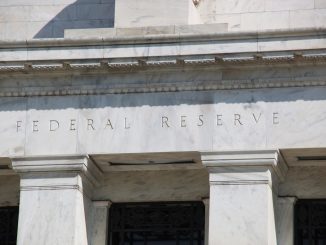1. Fed does what it said it would do—make its decisions based on the data. Good for them, and good for policy credibility.
2. Stocks up sharply . . . but wait, all the experts say QE doesn’t matter at zero rates. Pushing on a string. Perfect substitutes, etc, etc.
3. Bond yields down. Yes, that goes against the view that the income and inflation effects usually trump the liquidity effects for long term bonds. But consider:
a. The level of the 10 year is still around 2.8%. That’s the yield with no tapering at all. What does that tell us? It tells us that very little of the run-up in yields since last year is due to expectations of tapering. In other words, the Keynesians are right that QE means slightly lower yields right now, but people like Michael Darda are even more right; expectations about the future path of the economy are the major factor pushing up rates. That doesn’t necessarily mean higher real growth expectations (the composition of growth also matters) but it probably does at least to some extent. This was a big natural experiment, and we just found out that very little of the more than 100 basis point run-up in yields was due to fear of tapering.
b. It’s possible that due to market segmentation the QE purchases have more of a liquidity effect on the 10 year that ordinary OMOs during normal times. But if so, doesn’t that mean QE is less likely to lead to a stock bubble than otherwise? I.e. if markets are segmented then the “distortions” are more likely to be in the asset classes directly purchased by the Fed. Or am I missing something? (The risk of instant reaction.)
- Bulenox: Get 45% to 91% OFF ... Use Discount Code: UNO
- Risk Our Money Not Yours | Get 50% to 90% OFF ... Use Discount Code: MMBVBKSM
Disclaimer: This page contains affiliate links. If you choose to make a purchase after clicking a link, we may receive a commission at no additional cost to you. Thank you for your support!





Leave a Reply